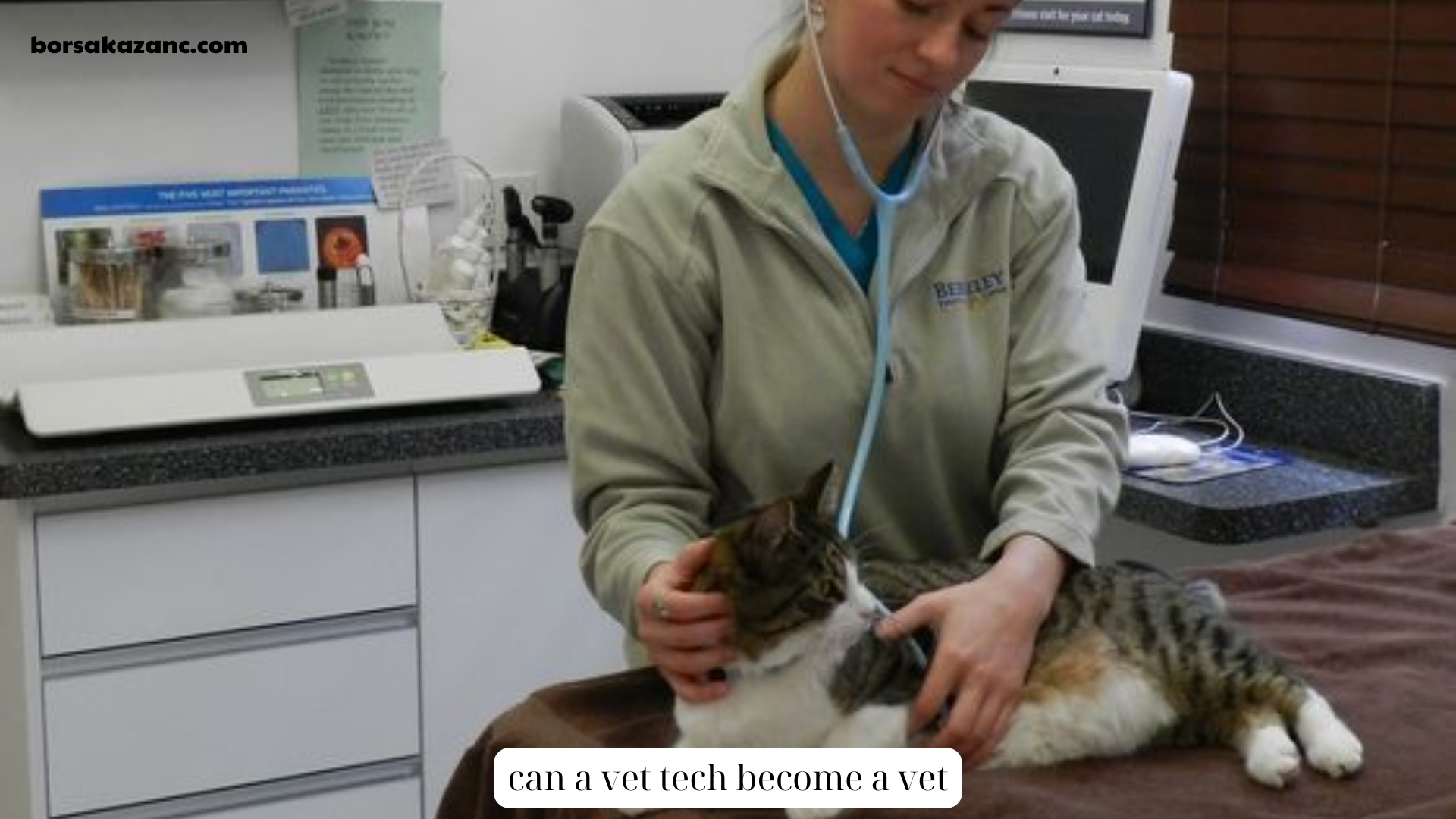The path from veterinary technician to licensed veterinarian is not a straightforward one, but it is a journey that many aspiring professionals have undertaken. As the role of veterinary technicians continues to evolve and expand, the question of can a vet tech become a vet transition into a full-fledged veterinarian has become increasingly relevant. Let Borsakazanc unveal the answer for that in this article.
Exploring the Path: Can a Vet Tech Become a Vet as Licensed Veterinarian?

Vet techs are can a vet tech become a vet an essential part of the veterinary healthcare team, responsible for providing critical support to veterinarians in areas such as patient care, laboratory procedures, and client education. With their extensive hands-on experience and deep understanding of animal health, vet techs often possess a unique perspective that could serve them well in the pursuit of a veterinary degree.
One of the primary considerations can a vet tech become a vet for a vet tech seeking to become a veterinarian is the educational requirements. In the United States, aspiring veterinarians must complete a Doctor of Veterinary Medicine (DVM) program, which typically takes four years to complete after earning a bachelor’s degree. This process can be challenging for vet techs, who may already be established in their careers and may have financial and personal obligations that make the transition to a full-time academic program daunting.
However, many veterinary schools recognize can a vet tech become a vet the valuable experience and skills that vet techs bring to the table and have developed specialized programs to accommodate their unique circumstances. These programs often offer accelerated or part-time options, allowing vet techs to continue working while pursuing their DVM degree.
One such example is the Veterinary Technology to can a vet tech become a vet DVM program offered by the University of Illinois College of Veterinary Medicine. This program recognizes the prior training and experience of vet techs and allows them to complete their DVM degree in just three years, rather than the traditional four. Similarly, the University of Georgia College of Veterinary Medicine offers a Veterinary Technology Scholars program, which provides a pathway for vet techs to earn their DVM in an accelerated, three-year format.
These specialized programs not only acknowledge can a vet tech become a vet the expertise of vet techs but also demonstrate the veterinary profession’s desire to support and encourage their career advancement. By providing vet techs with an alternative route to earning their DVM, these programs aim to harness the knowledge and skills that vet techs have already acquired, ultimately strengthening the overall veterinary workforce.
Another important consideration for vet techs aspiring can a vet tech become a vet to become veterinarians is the financial aspect. Pursuing a DVM degree can be a significant financial investment, with tuition and other educational expenses often exceeding $200,000 at many veterinary schools. Vet techs, who may already be earning a steady income, may be understandably concerned about the financial implications of taking on additional student debt.

To address this challenge, some veterinary schools and can a vet tech become a vet organizations have developed scholarship and loan forgiveness programs specifically tailored to vet techs. For example, the American Veterinary Medical Foundation (AVMF) offers the Veterinary Technician Scholarship, which provides financial assistance to vet techs who are pursuing their DVM degree. Additionally, the Veterinary Medicine Loan Repayment Program (VMLRP) offers student loan repayment assistance to veterinarians who agree to practice in designated shortage areas, which can help alleviate the financial burden for vet techs transitioning to the veterinary profession.
Beyond the educational and financial considerations, can a vet tech become a vet techs must also address the practical and personal challenges that come with transitioning to a veterinary career. The rigorous academic workload, the demands of clinical rotations, and the stress of passing the North American Veterinary Licensing Examination (NAVLE) can all pose significant hurdles for vet techs who are juggling work, family, and other responsibilities.
To overcome these challenges, vet techs must demonstrate a strong commitment to their goal, as well as a willingness to adapt and persevere. Effective time management, a supportive network of family and colleagues, and a well-developed plan for managing the transition can all be crucial factors in helping vet techs successfully navigate the path to becoming licensed veterinarians.
Despite the obstacles, the decision to pursue a can a vet tech become a vet degree can be a deeply rewarding one for vet techs. The opportunity to expand their scope of practice, take on more advanced responsibilities, and make a greater impact on animal health and welfare can be a powerful motivator. Moreover, the transition can open up new career opportunities, such as specializing in a particular field of veterinary medicine or taking on leadership roles within the profession.
As the veterinary industry continues to evolve, the need for can a vet tech become a vet skilled and experienced professionals is likely to grow. By providing vet techs with accessible pathways to earning their DVM degrees, the veterinary community not only supports the professional development of its own members but also strengthens the overall quality of care and service provided to animal patients and their owners.

In conclusion, the journey from veterinary technician to licensed veterinarian is challenging but not impossible. With the support of specialized academic programs, financial assistance, and a strong personal commitment, vet techs can successfully navigate this transition and unlock new opportunities to make a lasting impact on the veterinary profession. As the role of vet techs continues to evolve, the potential for vet techs to become veterinarians will only continue to grow, offering a promising future for those who are willing to embark on this transformative path.